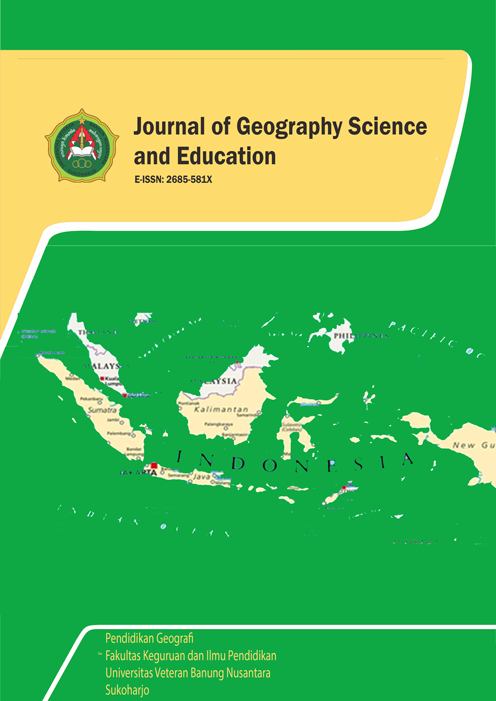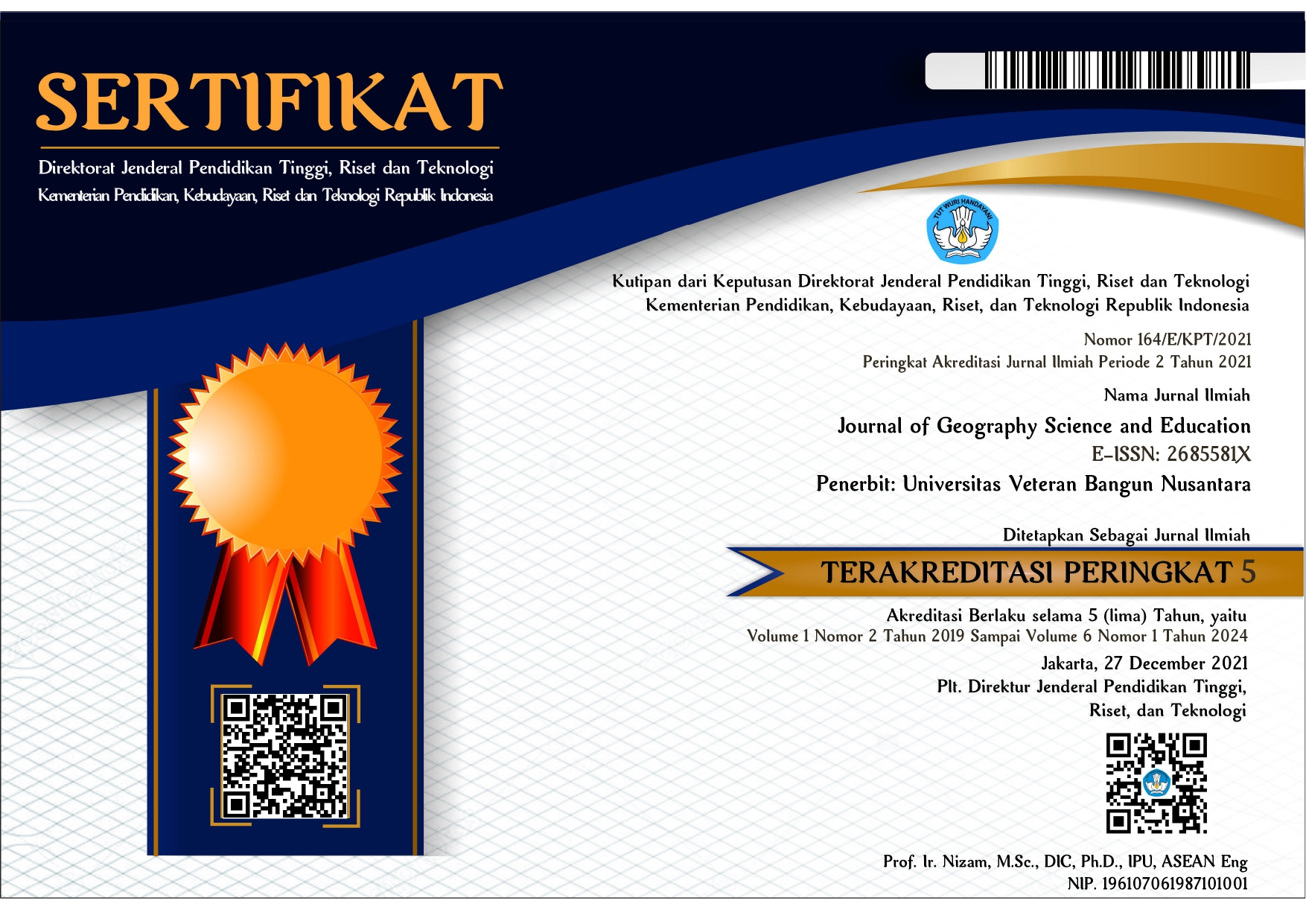The Effect Of Social Capital On Interest In Entrepreneurship With Self-Efficiency
DOI:
https://doi.org/10.32585/jgse.v4i2.2542Keywords:
social capital, self-efficacyAbstract
The formulation of the problem in this study is how the influence of social capital on the interest in entrepreneurship with self-efficacy in STPKat students. This study aims to analyze the effect of student social capital on entrepreneurial interest with self-efficacy. In order to answer this problem, Bourdie's theory of social capital and Bandura's theory of self-affication are used. This research method is quantitative, with a focus on analyzing the influence of student social capital on the interest in entrepreneurship with self-efficacy. The analysis used in this research is simple linear regression analysis, looking for the effect of social capital variable (X) on entrepreneurial interest and self-efficacy (Y). The results obtained are social capital has a positive influence coefficient, 0.355 the higher the social capital of a student, the higher the self-efficacy, or an increase of 35.5%. Social capital has a significance t of 0.540, which means this significance is > 0.05, so social capital has no significant effect on entrepreneurial interest and self-efficacy in STPKat Semarang students. Test the coefficient of determination on the adjusted R Square value. the contribution of social capital (independent variable) 8.8% to self-efficacy, in the sense that 81.2% can be found in further research outside the social capital variable.
Downloads
References
Alifia Fitriana Suprapto, Nur Lailatul Maghfiroh, D. (2016). Bagaimana Mahasiswa berbicara Politik? Media NUsa Creative.
Alwisol. (2005). Psikologi Kepribadian. Malang. UMM Press.
Chemers, M. M., Hu, L. T., & Garcia, B. F. (2001). Academic self-efficacy and first year college student performance and adjustment. Journal of Educational Psychology, 93(1), 55. https://doi.org/https://doi.org/10.1037/0022-0663.93.1.55
Fitriana, S., Ihsan, H., & Annas, S. (2015). Pengaruh efikasi diri, aktivitas, kemandirian belajar dan kemampuan berpikir logis terhadap hasil belajar matematika pada siswa kelas VIII SMP. Journal of Educational Science and Technology (EST), 1(2), 86–101.
Handriani, E. (2011). Pengembangan Kualitas Pendidikan Kewirausahaan diPerguruan Tinggi. Jurnal Ilmiah Inkoma, Volume 22, 83–95.
Muizu, W. O. Z., Evita, S. N., & Suherman, D. (2016). Disiplin kerja dan pengaruhnya terhadap kinerja pegawai negeri sipil., , . PEKBIS (Jurnal Pendidikan Ekonomi Dan Bisnis, 8(3), 172–182.
Murtini, W. (2008). Success Story Sebagai Pendekatan Pembelajaran Kewirausahaan. Varia Pendidikan, 20, No.2, 173–183.
Prof. Dr. Thomas Santoso, M. S. (2020). Memahami Modal Sosial. CV Saga Jawadwipa PUSTAKA SAGA.
Statistik, BPS, B. P. (2021). Tingkat Pengangguran Terbuka Berdasarkan Tingkat Pendidikan 2019-2021. https://www.bps.go.id/indicator/6/1179/1/tingkat-pengangguran-terbuka-berdasarkan-tingkat-pendidikan.html
Sugiyono, P. D. (2013). Metode Penelitian Kuantitatif, Kualitatif dan R&D. Alfabeta.
Thobias, E. (2013). Pengaruh modal sosial terhadap perilaku kewirausahaan (suatu studi pada pelaku usaha mikro kecil menengah di Kecamatan Kabaruan Kabupaten Kepulauan Talaud). Acta Diurna Komunikasi, 2(2).
Downloads
Published
How to Cite
Issue
Section
License
Authors who publish with the Journal of Geography Science and Education agree to the following terms:
- Authors retain copyright and grant the journal the right of first publication with the work simultaneously licensed under a Creative Commons Attribution License (CC BY-SA 4.0) that allows others to share the work with an acknowledgment of the work's authorship and initial publication in this journal.
- Authors are able to enter into separate, additional contractual arrangements for the non-exclusive distribution of the journal's published version of the work (e.g., post it to an institutional repository or publish it in a book), with an acknowledgment of its initial publication in this journal.
- Authors are permitted and encouraged to post their work online (e.g., in institutional repositories or on their website) prior to and during the submission process, as it can lead to productive exchanges, as well as earlier and greater citation of published work.






